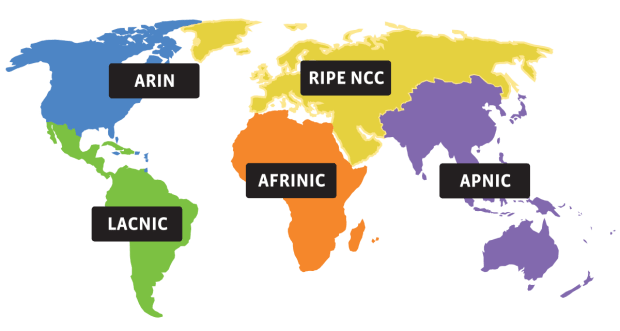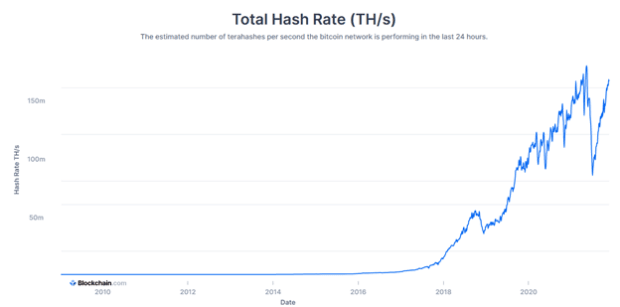Why Aren’t More Bitcoin Miners Setting Up Shop In Canada?
As more bitcoin miners migrate from China, they are hesitant to set up shop in Canada, despite abundant energy and a cool climate. But why?
Canada seems to offer many of the advantages for successful bitcoin mining — lots of stranded renewable energy (mostly hydro), a cooler climate (which is easier on equipment) and a lower fiat currency value (more competitive than the U.S. dollar).
But even with China losing more than 20% of its hash rate in recent weeks because of forced regulatory shutdowns, and with the U.S. rate climbing to 17%, the Cambridge Center for Alternative Finance estimates that Canada’s current share of the world’s Bitcoin network is only 3%.
Malaysia, Kazakhstan, Iran and Russia are all mining at a higher hash rate than Canada.
So, what is keeping bitcoin miners out of Canada?
The Cost Of Energy In Canada Is Prohibitive To Bitcoin Miners
Compass Mining, a full-service mining host and equipment provider, recently released an in-depth mining report that included a look at mining in Canada and concluded that energy should be inexpensive there — but that a problem lies with the regulatory environment. In addition, the report noted that the Canadian government is developing a carbon tax that will likely raise the cost of energy.
Demonstrating this problem, Colin Sullivan, CEO of British Columbia-based MintGreen, explained that energy prices in that province are relatively high because local energy provider BC Hydro is a crown corporation and doesn’t have the same commercial pressures as a private provider.
“I wouldn’t describe energy prices as globally competitive,” Sullivan told Bitcoin Magazine. “In my conversations with Chinese miners, they’re looking for energy costs around $50 per megawatt hour.”
For his business in particular, that concern has not been a deal breaker for operating in Canada, though many other bitcoin mining operations would likely not see it this way.
“MintGreen is less interested in power prices because we create heat markets with our miners,” Sullivan added. “Selling heat from our digital boilers allows us to be much more competitive irrespective of energy price. This and green grid power makes British Columbia an excellent fit for us.”
The World Bank publishes an “Ease Of Doing Business” ranking, which includes a measure of the availability of electricity. Its data gives Canada a low score for its availability of power sources, ranking it 124 out of 190 countries for ease of accessing electricity. (The U.S. ranks 64.)
Citadel256, a Canadian startup with founding partners who are Canadian entrepreneurs, is helping miners from China relocate to Texas and the U.S. Midwest, because this lack of energy availability prohibits it from recommending its home country.
“We’d like to recommend Canada, but the problem here is not so much the cost of energy itself but the logistics of accessing energy markets,” Citadel256 cofounder and mining consultant Magdalena Gronowska told Bitcoin Magazine. “Energy is abundant in Canada but it’s not cheap to access. The cost of energy infrastructure — generation, transmission and distribution — is spread across and recovered from the rate base.”
“Canada has a large landmass and infrastructure investments are recovered over a smaller population base than the U.S., so it’s generally more expensive,” she added.
Canada’s Regulatory Environment Pushes Bitcoin Miners Elsewhere
Compass Mining’s report maintains that Canada’s regulatory environment is the main problem for mining companies noting that ”the high level of bureaucracy in the country has hindered the growth and scalability of Bitcoin mining,” and that “there is a lack of clarity regarding how cryptocurrency assets should be treated. Each Canadian province having its own securities regulator further complicates matters.”
The report cited the case of Blockstream mining, which has farms in Quebec and in the U.S. state of Georgia. Going forward, Blockstream has chosen to expand in Georgia as it finds Quebec’s regulatory environment too difficult to navigate.
Gronowska agrees with Compass Mining that the Canadian regulatory environment is a challenge.
“Regulatory burden and red tape can also add costs and timeline uncertainty to a facility build out, which adds risk to any mining project,” she noted. “Canada has stringent environmental and safety regulations. For example, carbon is increasingly becoming a cost center and factor into long-term operational decisions. Electrical equipment that meets our standards may result in longer lead times.”
Compass concluded that it is the country’s confusing and unclear regulatory environment that causes mining companies to go elsewhere.
“A myriad of regulatory bodies increases the risk that miners can be subject to changes that unfavorably impact their businesses,” per the report. “Provincial, federal and municipal governments may also introduce changes that adversely affect mining operations.”
Gronowska agrees that there tends to be a bias against business in Canada and that fragmented regulations and multiple regulatory bodies impose additional challenges for bitcoin miners.
“Miners seek the path of least resistance and favor more business-friendly jurisdictions outside Canada,” she said.
Canada Does Have Some Advantages For Bitcoin Miners
Still, some bitcoin mining operations, like MintGreen, have been able to find niches that make Canada the perfect home for them. The province of Alberta is the most business-friendly jurisdiction in the country, and companies like Upstream Data have been able to thrive off of the grid using gas flaring from oil production.
And on another positive note, bitcoin mining companies wanting to list on Canada’s stock exchange are likely to be more successful there than they would be in the U.S.
“Stock exchanges with less stringent listing requirements, like the Toronto Venture Stock Exchange (TSXV), have resulted in a diverse collection of cryptocurrency companies trading on the public markets in Canada,” Compass Mining reported. “The risk profile of Canadian companies is generally higher compared to their U.S. counterparts.”









